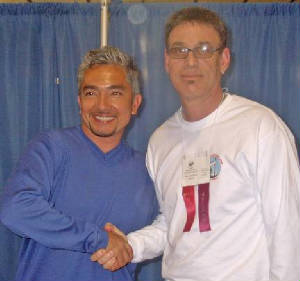At any point in our lives, we may find ourselves faced with significant trauma. When this trauma occurs, we’re often tasked with finding an effective way to cope. While psychotherapy and mental health counseling are going to be the primary tools we use to address trauma related challenges, you’ll also want to look for changes in your own life that can help you stay calm in periods of stress.
Research has found that dogs can play a role in helping people cope with traumatic events. Therapy dogs, specifically, are trained to provide help for people with trauma, but what about dogs in general? Can even dogs that are not approved to be therapy dogs still provide help?
According to most research, the answer is still yes. But there is a caveat.
Psychological Benefits of Dogs for Trauma Survivors
Studies indicate that the presence of a dog can help regulate emotional responses in individuals who have experienced trauma. Benefits include:
- Reduction in Anxiety and PTSD Symptoms – Research has shown that interacting with dogs lowers cortisol (a stress hormone) and increases oxytocin, which promotes feelings of safety and connection. Individuals with PTSD often report fewer flashbacks, nightmares, and hypervigilance when supported by a dog.
- Emotional Regulation – Dogs provide non-judgmental companionship, which can help trauma survivors feel more emotionally stable and supported. This is particularly beneficial for those who struggle with social relationships due to trauma.
- Reduction in Depression and Loneliness – Trauma often leads to isolation and emotional withdrawal. Studies show that dogs help mitigate feelings of loneliness by offering companionship and encouraging social interaction.
Trauma affects the nervous system, often keeping individuals in a heightened state of arousal or distress. The presence of dogs has been linked to measurable physiological changes that promote relaxation.
Petting a dog has been shown to activate the parasympathetic nervous system, which promotes relaxation and counteracts the body’s fight-or-flight response. Regular interaction with dogs has been associated with lower cortisol levels, helping trauma survivors manage stress more effectively.
Readiness for Pet Ownership
With that in mind, a person still has to be ready for the stresses of pet ownership. They have to love dogs. They have to be willing to train their dogs and take care of them. High stress, untrained dogs can increase feelings of stress in a person, and that’s not ideal for you or the dog.
Some dogs undergo rigorous training to be owned by people that have PTSD. PTSD service dogs are trained to perform tasks like interrupt people form nightmares, create physical space in crowded environments, and even sniff out and alert their owners to rising stress levels. Dogs that have this type of training can be immensely beneficial, but it is a very specific type of training and often only very specific dog breeds.
Still, for people that already love dogs and are excited to put in the work to training one, dogs can potentially be beneficial even if they are not PTSD service dogs. The bond between humans and dogs is rooted in evolutionary and neurobiological mechanisms.
Studies show that mutual eye contact between a dog and its owner increases oxytocin levels in both species, reinforcing a sense of trust and emotional connection. Dogs are capable of recognizing human emotions and responding accordingly, making them highly attuned companions for trauma survivors. And structured interaction with dogs can promote positive behavioral changes, helping trauma survivors engage in daily routines and social interactions.
While dogs are not a substitute for professional mental health treatment, dogs can be a valuable component of trauma recovery. If you’ve purchased a dog and would like to help train it, reach out to Marc Goldberg of Chicago Dog Trainer, today.





